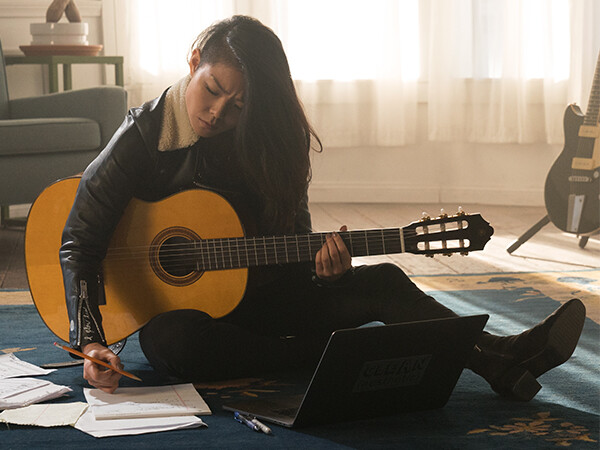The Pleasure / Pain Principle
Where do our best songs come from?
In a recent blog, I relayed a story about a producer who told me he hoped I would always be sad because I wrote great songs when I was depressed. He was speaking of one particular song he had worked on — the very first piece I got recorded.
Needless to say, I was an impressionable young writer at the time. What was I to make of that comment? Not that I disagreed that my sad song was a winner, but I wondered for quite some time if I was destined to spend my creative life on the dark side in order to stay on my game.
That was a long time ago. Looking back with what I know now, I realize that the producer’s wish was just one man’s opinion. In fact, my two most commercially successful songs were written from a place of joy, about how happy and empowered I felt. Nothing depressing about that.
Still, the idea that a composer can go inward and extract greatness from a particular emotion had me musing. Are songwriters most productive when they’re zombie-like from a breakup or under the spell of falling madly in love?
We’re all well aware that having the blues is a powerful precursor for making art. There are plenty of songs to prove it. (For example, “Layla” by Eric Clapton — a lament of unrequited love for his best friend George Harrison’s then-wife Pattie.)
But what about cheer?
Consider Pharrell Williams’ “Happy.” Bobby McFerrin’s “Don’t Worry Be Happy.” Or Katrina and the Waves’ “Walking on Sunshine.”
You get the picture — all equally expressive and effectively executed.
In her article “You Don’t Have to be Tortured to Be an Artist,” author Caroline Beaton writes about Elizabeth (Eat Pray Love) Gilbert, who explains that “famous artists … glorified the idea that pain must precede creativity […] Marvin Gaye said that “Great artists suffer for the people” and Norma Maylor wrote, “Every one of my books has killed me a little more.” But … “she doesn’t buy the romantic idea that you have to kill yourself, or at least want to, to create great art.”
Adds Harvard researcher Teresa Amabile in an article on the Creativity At Work website, “There’s this widespread notion that fear and sadness somehow spur creativity. There’s even some psychological literature suggesting that the incidence of depression is higher in creative writers and artists.
“But,” she continues, “we don’t see it in the population that we studied” — 280 creative people working in various industries. Instead, she found that they “are happiest when they come up with a creative idea, but they’re more likely to have a breakthrough if they were happy the day before.” (Italics mine.)
Even when experiencing negative emotions, we’re most productive when there’s a “high clarity of feeling” — an awareness of one’s own emotions. I can offer anecdotal proof of that since I didn’t actually write that sad song (the one the producer was so enamored of) when I was in the throes of a break-up. I actually wrote it in retrospect, after I had some time to think long and hard about exactly what transpired, and why. I had survived and lived to tell the tale. I had already come out of the dark.
Eric Clapton notwithstanding, creative inspiration doesn’t always come from unrequited love. In fact, we can take romantic love off the menu entirely when looking to tap into our emotional well for inspiration. Consider the classic “Wonderful World,” in which Bob Thiele and George David Weiss remind us of the beauty all around us, or Jule Styne and Bob Merrill’s “People,” a song about humans needing each other. Listening to these songs, you believe the authors weren’t making it up as they went along but were passionately engaged in their topic. So maybe that’s it!
Music written from a “beige” state of mind will most always result in a beige song. So to answer the question at hand: Which emotion is the more provocative of the two — pleasure or pain? I’d say neither. Or both. Or all of the above. It’s not about whether we’re happy or sad, but how acutely and intensely we feel what we feel. I believe a composer’s best work will simply be the result of whatever it is they care most deeply about.
One day I hope to get a chance to explain this to that producer.















